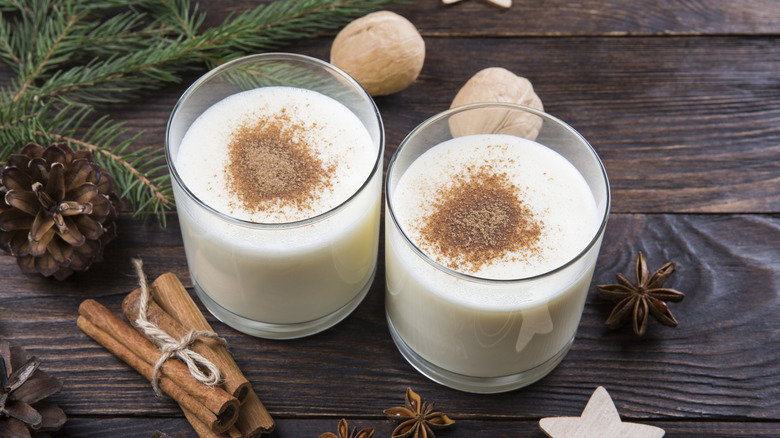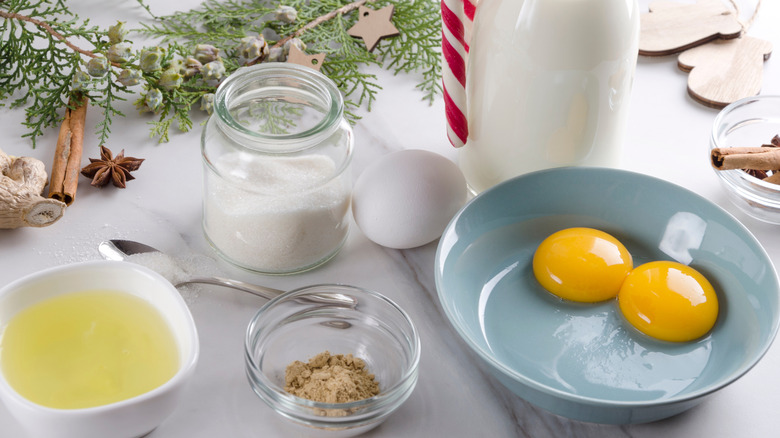How Is Eggnog Actually Safe To Drink?
Consuming raw or undercooked eggs poses a health risk and is not recommended by organizations such as the United States Department of Agriculture (USDA), but do those same warnings apply to eggnog? Well, it depends. Some types of eggnog are totally safe to drink, and others pose some risk if consumed.
It all comes down to pasteurization. Pasteurized eggs have been heat-treated to kill potentially harmful pathogens, such as salmonella. To do this, the eggs spend between 65 and 75 minutes in a water bath held at about 135 degrees Fahrenheit. This is a similar process to what dairy products like milk and cream undergo to make them safe to consume and more shelf-stable. The reason eggnog usually doesn't make you sick is that the majority of store-bought products use pasteurized eggs in the mix. This variety is generally safe to consume for everyone, including pregnant people or folks with a compromised immune system.
However, many traditional eggnog recipes use raw or barely cooked eggs, which can be problematic. Now, some people are willing to take the chance — if you like to lick that raw brownie batter off the spoon, sip on egg white cocktails, or dip your fries in a classic homemade aioli, you have consumed raw eggs that may not have been pasteurized. Maybe homemade eggnog is worth it for you too, but know that it can potentially cause certain kinds of food poisoning.
How to make safe-to-drink homemade eggnog
If you really want to go the homemade route, there is an excellent and straightforward way to make risk-free eggnog — just use pasteurized eggs! To do so, you have a couple of different options. First, you can just buy whole eggs from the store that have been pasteurized. Though these are not always widely available, they are the best option, if you can get your hands on them. They will be in the refrigerated section right next to the non-pasteurized eggs. Otherwise, buy those liquid eggs that come in a carton as they have to be pasteurized. Any egg product that is sold with no shell is safely pasteurized.
You can also seek out a recipe that calls for cooking the egg mixture. Once it reaches 160 degrees Fahrenheit, it is totally safe to consume. However, this method is a bit more labor intensive because it requires carefully and slowly cooking the eggs and sugar together in a double boiler while stirring constantly.
If this all sounds like too much fuss, we get it. In that case, store-bought is a sure-fire way to go when you want safe (and low-lift) eggnog — spike a booze-free option with your spirit of choice, or go for something with alcohol like Costco's Kirkland Signature eggnog for even less prep work.


